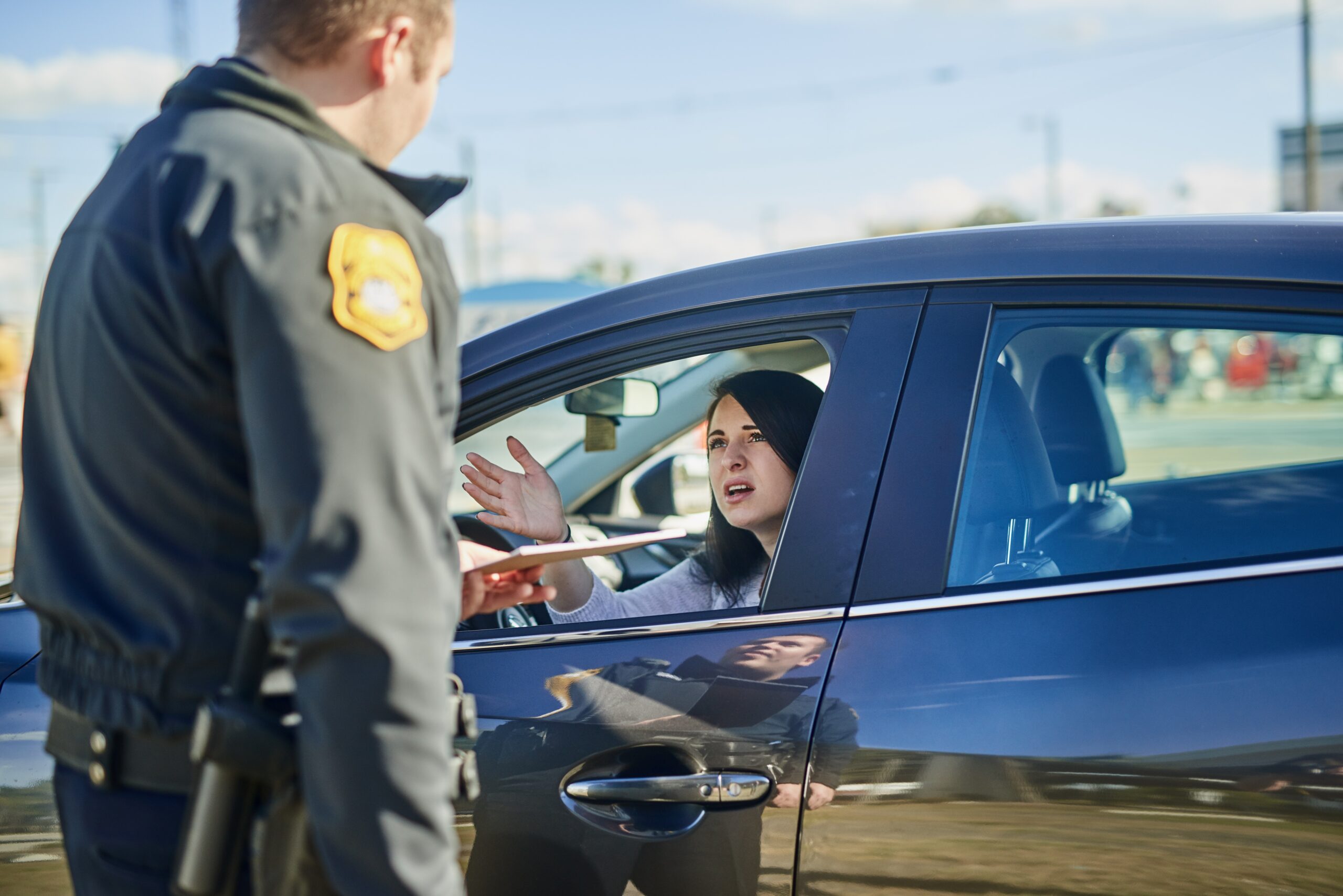
Your 5 Rights During a Traffic Stop You Need to Know About in Connecticut
Stopped by the Police? Your Rights During a Traffic Stop in Connecticut
Seeing red and blue flashing lights in your rearview mirror is enough to make anyone’s heart race. Even if you are a careful driver, being pulled over is a stressful experience that can escalate quickly if you aren’t sure of the rules. While police officers have specific authorities to enforce the law, you also have constitutional protections that apply from the moment you pull over.
Understanding your traffic stop rights in Connecticut is the best way to handle the situation safely and legally. Knowing what you are obligated to do — and what you can refuse — empowers you to protect your interests without escalating the situation. If your rights are abused during a traffic stop or you have been wrongfully charged for a crime at a traffic stop, the criminal defense attorneys at Jacobs & Dow, LLC, can help.
1. Remaining Calm and Providing Documentation
The first few moments of a traffic stop are critical. When you see the lights, signal, and pull over to a safe spot as soon as possible. Turn off your engine, turn on your internal light if it is dark, and keep your hands visible, preferably on the steering wheel.
While you have many protections, there are specific obligations you must meet. In Connecticut, you are required to provide your driver’s license, vehicle registration, and proof of insurance when an officer asks for them.
It is generally advisable to keep your doors locked and only roll your window down enough to communicate clearly with the officer. However, if the officer instructs you to exit the vehicle, you must comply. Refusing to get out of the car when ordered can lead to additional legal trouble.
2. Refusing a Search: Know Your Boundaries
One of the most important rights during a traffic stop is the protection against unreasonable searches. An officer may ask, sometimes casually, if they can “take a look” inside your car.
You have the absolute right to refuse to consent to a search of your vehicle. If asked, you can clearly and firmly state, “I do not consent to a search.”
You mustn’t physically resist if the officer proceeds to search the vehicle anyway. State your objection verbally so it is on the record, but let the legal system handle the dispute later. If a search occurs after you have explicitly objected, a lawyer may be able to suppress any evidence found during that search if it wasn’t covered by a warrant or probable cause.
3. The Right to Remain Silent and Seek Legal Counsel
You are not obligated to answer questions beyond providing your identification and vehicle documents. Officers may ask where you are coming from, where you are going, or if you have had anything to drink.
You have the right to remain silent to avoid incriminating yourself. You can politely tell the officer, “I am exercising my right to remain silent,” or state that you wish to speak with a lawyer before answering any questions.
Additionally, while you have the right to refuse roadside sobriety tests, you should be aware of the consequences. Refusal can lead to an arrest and a warrant for a blood-alcohol test. However, you still maintain the right to consult with an attorney.
4. Recording the Traffic Stop
Transparency is a key component of modern policing, and technology plays a major role in that. In Connecticut, you have the right to record your interaction with the police.
You may use your smartphone to video record the stop as long as you do not interfere with police activity or obstruct the officer’s movements. If you choose to record, try to do so openly and without making sudden movements that could be interpreted as reaching for a weapon. Having an objective record of the event can be invaluable if there is a dispute later about what occurred.
5. What to Do if Your Rights Are Violated
If you believe your rights were violated during a traffic stop, the side of the road is not the place to argue your case. Arguing with an officer or physically resisting can lead to additional charges and endanger your safety.
Instead, comply with orders, observe as much as possible, and write down everything you remember as soon as the interaction is over. Note the officer’s badge number, the patrol car number, and the exact time and location of the stop. This information will be crucial for your attorney if you decide to contest the arrest or detention in court.
Protecting Yourself and Seeking Legal Assistance
Navigating a traffic stop requires a balance of cooperation and assertiveness regarding your constitutional rights. By remaining calm, providing only the required documents, and knowing when to remain silent or refuse a search, you protect your legal standing. If the situation leads to an arrest or a violation of your rights, your next step should always be to secure professional legal counsel.
Contact Jacobs & Dow, LLC for Legal Support
Jacobs & Dow, LLC has provided dedicated legal support to Connecticut injury victims for nearly 50 years. We understand the array of challenges you may face and are prepared to build a comprehensive legal strategy tailored to your individual needs. Our access to considerable resources and innovative technology allows us to deliver the legal representation you rightfully deserve.
Whether you are involved in a motor vehicle accident, suffer an injury due to a fall, or need assistance with an ongoing personal injury matter, our legal team will stand by you during your time of need. Contact us today to schedule a consultation.
